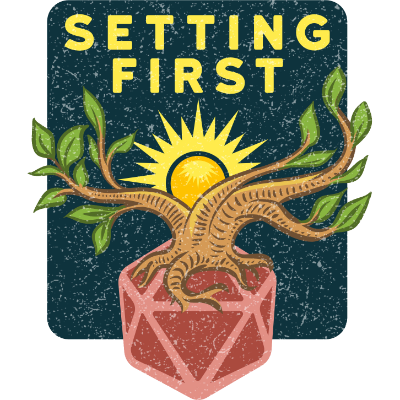
Why are we drawn to play tabletop RPGs, what can we learn from Guillermo Del Toro, and how do roleplaying games boost our mental health?
Getting Real About What Attracts People to Games
What Are RPGs Made Of makes many assertions, many of which I agree with and some of which I don’t, but these bits in particular spoke to me:
Most people are significantly more interested in what they’re doing and what sort of story they’re telling. For every Shadowrun fan who actually really likes massive sized dice pools, there are ten who are just really into sci-fi with magic and fantasy races. And among all those players who are most interested in the settings, worlds, and characters, there are multiple preferred ways to make those worlds and characters work at the table.
I believe gaming cognoscenti tend to focus too much on mechanics and not enough on setting. Calling setting “fluff” is all well and good until you recognize that in spite of being endlessly panned for bad mechanics, Shadowrun has been consistently popular for over three decades.
Implied in my definition of setting is the visual design of game books and the art therein. I’ve been meaning to write about this for some time, because the rise of the indie game movement has led to a tendency to downplay the importance of the visual aspects of gaming artifacts, which is to my mind a mistake.
…it’s not really useful or fair to highlight indie games that sold 500 copies at most and pretend that they’re driving the hobby in any material way.
Indie games feed the hobby by injecting new ideas into the mainstream. But the middle-tier companies sitting below WotC in head count and sales (Chaosium, Free League, Pelgrane Press, Modiphius, Edge, et al), have been producing high-quality games, many of them quite innovative, for years. If we ever want to get the hobby to a place where D20 classes-and-levels fantasy isn’t sucking up all the oxygen, it’ll be the middle-tier publishers that will get us there.
Guillermo Del Toro Continues to Be Awesome
Watching this, I was struck by the importance of placing Pinocchio in Fascist Italy. Setting, it would seem, does matter when exploring themes that are both personal and societal.
Del Toro is not only a masterful artist, he’s a deeply thoughtful human who has also figured out how to walk the high wire of satisfying the needs of both art and commerce. At a time when nobody seems to want to look at the world with any nuance, his work brings us face to face with our own darker natures, which is a prerequisite to finding common ground. If only there were more like him.
Hey, Let’s Talk About Mental Health
- The Loneliness Epidemic and RPGs by Angela Murray
- The Power of Tabletop RPGs in Nurturing Mental Health and Building Connections by Tavendale
My journey mirrors Angela Murray’s to some extent, and Tavendale’s explanation of the benefits of gaming is spot on. In this hobby we talk a lot about rules and we argue about whether other people are playing games the right way or not, but we should be talking a lot more about why we play. I’d take it one step further and say that in-person play is especially valuable in bringing people together and forging that sense of belonging and community that is lacking for so many people.
If you want to chat with Tavendale about his post, he’s on the Unpossible Journeys Discord, where we discuss all things tabletop roleplaying.
Ω

